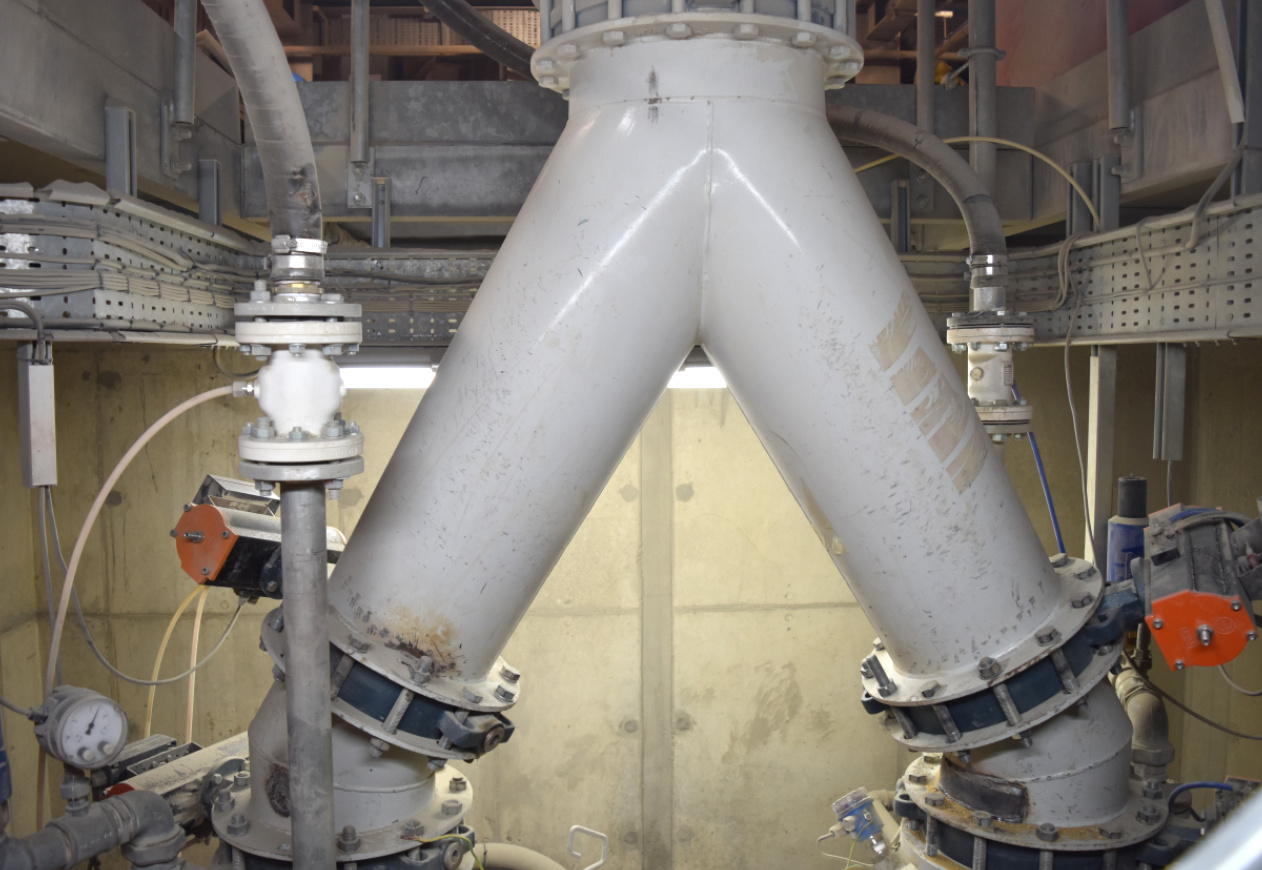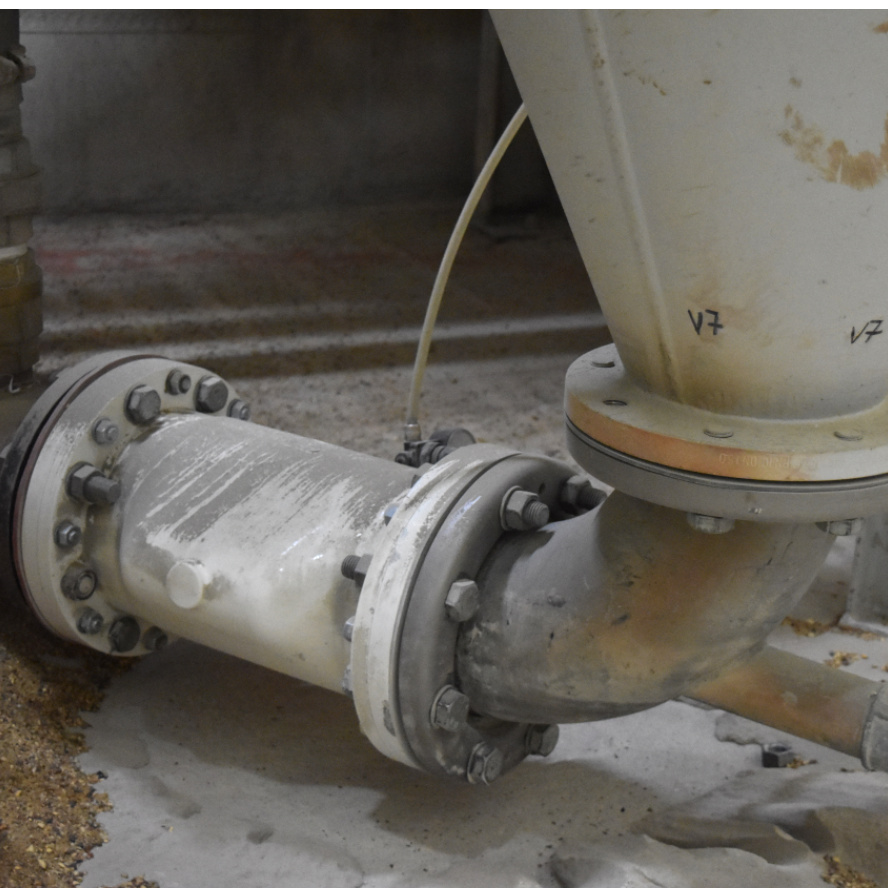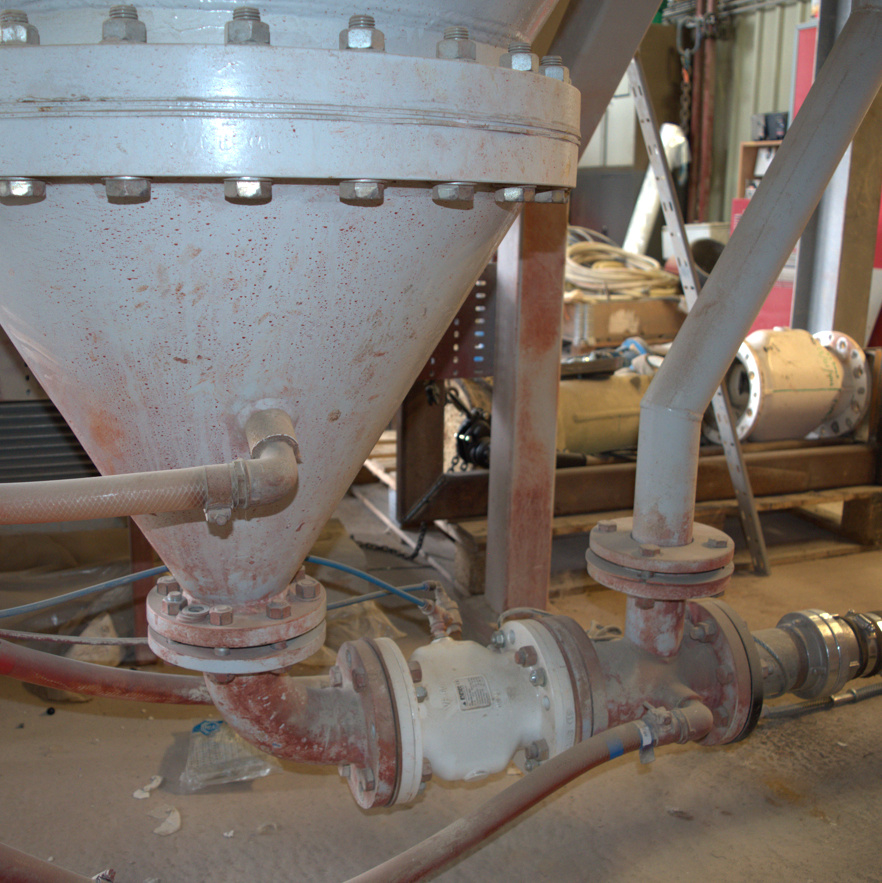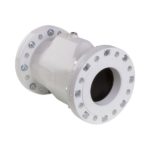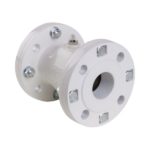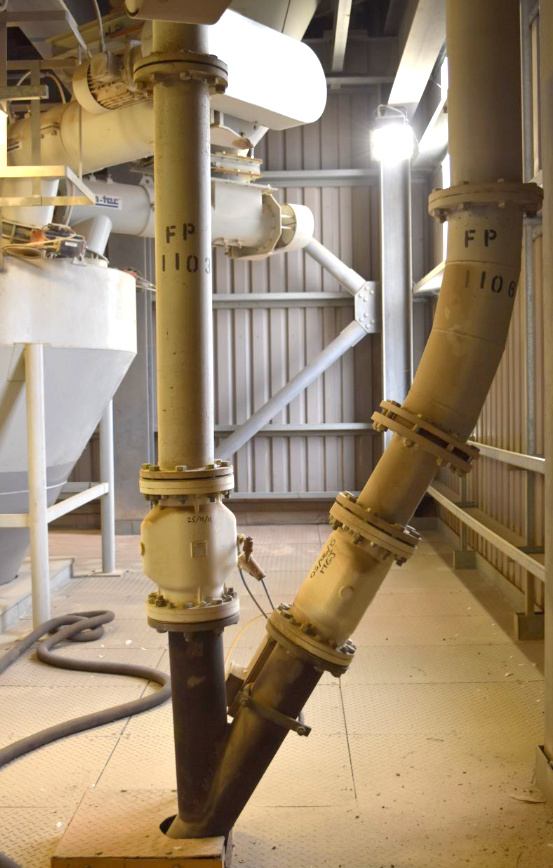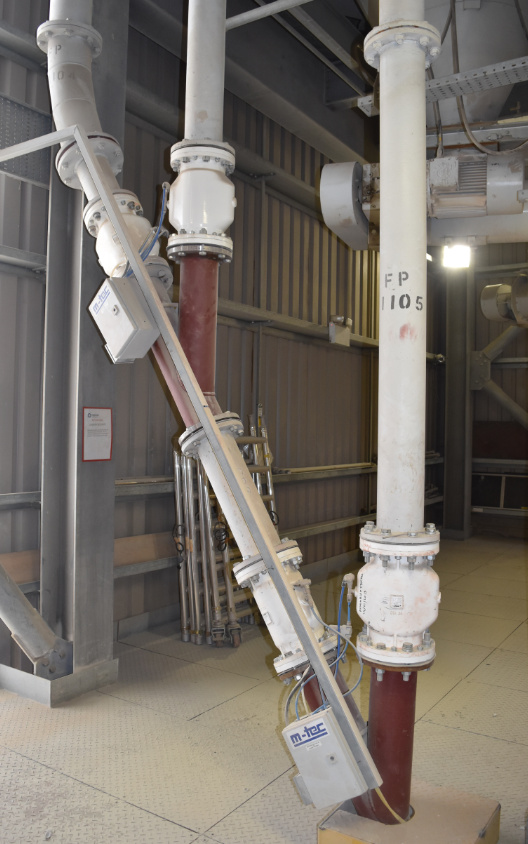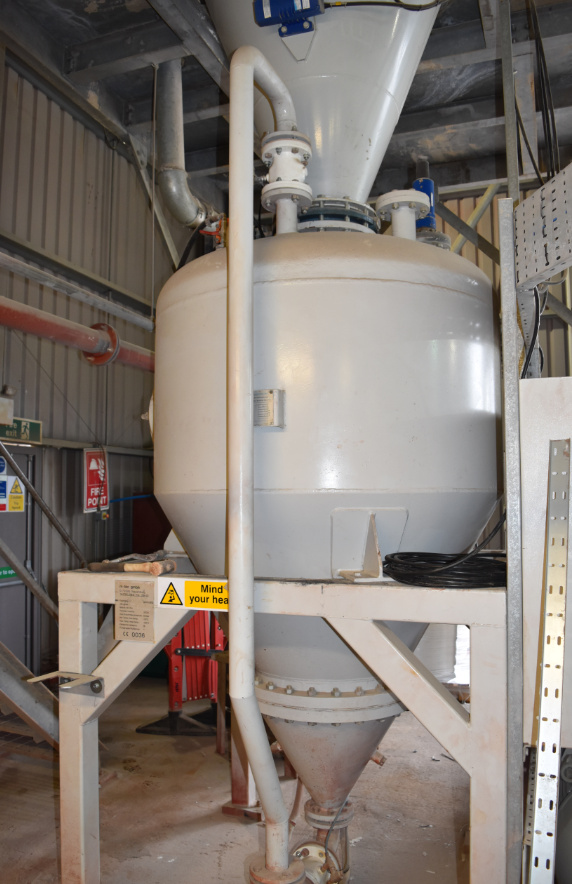Valves for Abrasive Dry Mortar: AKO Recommendations
AKO have advised the company to switch from aluminium flanges with mild steel bushings to flanges with stainless steel bushings (contact parts), which will significantly reduce wear and ensure the complete valve lasts even longer.
With regards to the line pressure of this application (2.7 Bar), and the closing pressure of 6 Bar, AKO have also advised that the closing pressure should be regulated down slightly. AKO Pinch Valves have a differential pressure of 2-2.5 Bar, which means anything higher than the differential pressure may cause the rubber sleeve to fail sooner. If exact pressure recommendations are adhered to, the Pinch Valve will last longer, and the user will be getting the most out of the product. To summarise, in this case we have advised for the closing pressure to be reduced to 5.2 Bar, which will still fully shut off the Pinch Valve for dry mortar, giving a tight seal. The smallest of changes can make all the difference.
As always, AKO recommends that one spare Sleeve per Pinch Valve is kept on site in stock at all times for scheduled maintenance. AKO also advise that mounting paste is used when installing a new Sleeve to the Pinch Valve.
Another recommendation was also suggested to this site, which was to make a note of the date with a marker pen on the valve body when the rubber sleeve was last replaced to keep on top of exactly how long they are lasting. In general, the company are replacing the sleeves in the Pinch Valves for abrasive dry mortar every 6-12 months.



